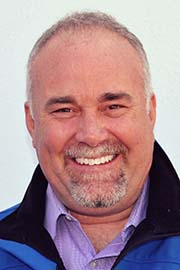- Mar/29/23 9:10:00 a.m.
- Re: Bill 85
Thank you to the member for Nepean.
I’m not exactly sure what sixes and sevens means, so maybe you can explain that in your question.
We are firmly committed to ending anti-Semitism in Ontario. In our riding, we have many shuls that have been targeted with hate crimes, and we have been working with them to make sure they get federal money to increase their security measures. We are fully in support of measures to bring in a comprehensive anti-Semitism curriculum into the school board, and I am proud to support that.
We are hearing from nurses at the Ottawa Hospital—they have been very clear about this. And I’ll make sure to send you Kenyon Wallace’s article in the Star so you can read it for yourself, where nurses have been very concerned that a four-day cancer blitz was reduced to a three-day cancer blitz because they were not able to find the—
The city of Toronto has the Open Door program that developers, non-profits, for-profit, co-op providers can apply to, where development fees are reduced or waived in return for them building non-market housing or affordable housing.
The challenge we have with Bill 23 is that the definition that is being used for “affordable” is not affordable—80% of average market rent is not affordable; 80% of average sale price means a developer can get a 100% development fee discount and build a one-bedroom condo that is sold for $440,000. There is no one on minimum wage who can afford a $440,000 condo; it’s not happening. So the definition of Bill 23’s affordability program is concerning.
The final thing is that the city of Toronto is deeply concerned about Bill 23 and—
- Hear!
- Rabble!
- Mar/29/23 10:50:00 a.m.
Mr. Speaker, we’ve been clear. As soon as contracts are awarded, the values of those contracts are posted. They’re publicly available for anyone—for taxpayers and Global News—to examine as they wish.
What I know is, that member opposite and the Leader of the Opposition will do anything to make sure that we don’t build transit in the greater Toronto area. We’ve put out the largest transit expansion plan anywhere in North America, and that party voted against it. We brought forward measures to accelerate the delivery of transit, because we knew we had to address the transit deficit that was left by the previous Liberal government, who could not get transit built in the city of Toronto. We brought that forward. And what did they do? They all voted against it. It’s clear that this is why they are in opposition—because not only are they against transit; they’re against building it faster. It’s clear that they don’t even know how to get it—
- Hear!
- Rabble!
- Mar/29/23 11:00:00 a.m.
Thanks to the member from Ontario’s clean energy capital, the Durham region, for the question this morning.
I was pleased to join another member from that Durham caucus at Toronto Metropolitan University this morning to announce that Ontario is leveraging our world-class electricity grid by launching a voluntary clean energy credit registry. This registry is going to help boost competitiveness and attract jobs to Ontario, helping businesses meet their environmental and sustainability goals.
We know that global businesses are looking to expand in jurisdictions like Ontario with clean and reliable electricity.
Along with our well-trained workforce, which we have thanks to Toronto Metropolitan University, and competitive tax credits, which we have thanks to the Minister of Finance, and an exemplary R&D ecosystem, and clean energy in the province, the credit registry announced this morning is just one more reason for those big companies that the member mentioned to continue investing in Ontario.
- Hear!
- Rabble!
- Mar/29/23 11:30:00 a.m.
I want to thank the member for Mississauga–Lakeshore for being a champion for housing in his riding.
Our province is facing a historic housing supply crisis. We need more homes of all kinds, including homes for young Ontarians, newcomers and seniors, that are near transit.
That’s why last November I approved the new official plan for the region of Peel, which removes the discretion of lower-tier municipalities to set maximum heights within major transit station areas. The intent of the plan is to ensure that transit-supportive outcomes are achieved and that adequate housing supply is brought forward faster. For the residents of the member’s riding, this will mean great things. It will mean that if they work in Mississauga or Toronto, they will have a fast, car-free commute, something that our government believes ought to be encouraged.
Let me be clear: Provisions that would set maximum height limits in major transit station areas are contrary to the approved Peel region official plan.
We want to continue to put forward pro-housing policies that will help municipalities grow, with a mix of ownership, with a mix of rental housing times, to meet the needs of all Ontarians—from single-family homes to townhomes and mid-rise apartments.
We remain committed to working with all of our municipal partners and the federal government towards our common goal of building 1.5 million homes by 2031.
- Hear!
- Rabble!
- Mar/29/23 4:00:00 p.m.
- Re: Bill 85
Meegwetch. I know you spoke about the cost of living and how the cost of living has increased so much. Sometimes different areas of Ontario will talk about the cost of fuel, cost of gas, but I do remember this: I think everybody would complain if you were paying $3.50 per litre for gas. There’s no way Toronto would accept that and there’s no way that Toronto would accept paying $20 to $30 for four litres of milk. A flight from Big Trout Lake to Thunder Bay one way is $1,000. Is that acceptable? Is that the cost of living and what do you say to people that are investing in the north?
- Hear!
- Rabble!
- Mar/29/23 4:10:00 p.m.
- Re: Bill 85
I’m pleased to rise today and talk about the budget. Maybe I’m getting old and maudlin, but I can remember looking back at what drove me to make the decision to run for office in this House. It was in 2017 where people approached me and said, “We need someone like you in Toronto.” I think that was true for so many of us in the class of 2018. You’ll remember the same thing, Speaker, that drove you to run here. Our class especially—I think so many of us left very good positions and took a step back in order to serve the people of Ontario in this place, because we knew what 15 years of waste and mismanagement, to use that old quote, had done to the province of Ontario.
I still think about that a lot. It seemed like it was just yesterday, and yet it seems like such a lifetime ago. I’ve been thinking about that especially during budget time because of the changes we have made, and I think sometimes of how different it would have been if the government had turned out differently than it did.
I can remember that 350,000 jobs were chased out of the province of Ontario, and I think, listening sometimes to the Liberal members, that if they could pack a few more people into their van, they would still be driving those jobs out of Ontario right now, if they had the opportunity. But we’re in a position now where we have a deficit of workers in the province of Ontario of, I think, 350,000. That makes me wonder how much change we have done in just four short years for the benefit of the people of Ontario.
When I think of a budget that has the largest spending in every single sector that’s ever happened before, I think it’s $200 billion or something like that—I’m not that kind of a numbers guy; I think more in the terms of prescriptions and eyeglasses than in those kinds of numbers—what a difference. We haven’t sacrificed anything to the most vulnerable in the province of Ontario, and yet we are on a path to balance, and that’s after having been through a global pandemic—it’s now endemic—that screwed up the lives of so many, that cost us 50,000 lives in the province of Ontario, and yet we can say with confidence that we are on a path to balance in this province.
I think of that conversation that I had that seems like a lifetime ago, conversations that many of us have had with people who said, “You know what? We need someone like you to stand for the people of Ontario, not just for the riding, but for the sake of the people of Ontario, so that we can turn things around.”
Because if there’s one thing that I’ve learned in the last four years, and especially in working with the Indigenous people in my riding, the nations that I represent here, it’s that we stand on the shoulders of those who have gone before us, but we are all connected with those who have gone before and with those who will come after. One of the tag lines that I’ve adopted through my work here is that we have to leave things better than we found them. It’s so incredible to be part of a government that is committed to leaving things better than we found them.
Again, when I contemplate the fact that we’re looking at a budget that, if passed, will spend more than ever before—I apologize for those fiscal hawks who may be watching, but we are investing more into infrastructure, into roads, into bridges, into making good things happen for Ontario than ever before.
- Hear!
- Rabble!







